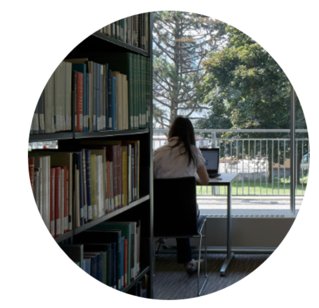G2. Digital Education 
 Status: completed
Status: completed
Progress: completed
In March 2020, Waterloo, like all other Ontario universities, pivoted to offering all its courses remotely. Operating in a virtual environment within the middle of a school term required us to address the needs of digital accessibility at a fast pace. Communication barriers typically experienced by persons with disabilities were quickly brought to the forefront, as individuals began to struggle with accessing technology, requirements for flexibility to balance competing priorities, and the need to consume information in various formats to manage digital fatigue. The Centre for Teaching Excellence, Centre for Extended Learning, Instructional Technologies and Media Services and the Library came together in March 2020 to form the Keep Learning (KL) team. The team’s support efforts were focused on instructors, who were not only required to teach remotely with little notice or preparation, but also provide the quality learning experience expected at Waterloo. The Keep Learning website was quickly established with the collective expertise of these units. Other Academic Support Units such as AccessAbility Services, Office of Academic Integrity, and Student Success Office, to name a few, provided valuable contributions to the site and various initiatives to further support instructors in designing and teaching courses online.
In the Spring 2020 term, Waterloo offered 1,372 courses. While some of these courses were already fully online (226), the majority (1146) were rapidly developed to meet the need during the pandemic. In the Fall 2020 term, 2231 courses were offered, with only 12 per cent of them using pre-existing CEL courses.
The KL team brought together resources related to Accessibility and Universal Design under one umbrella, and they continue to maintain and update the site regularly. As instructors  turned to technology for the creation of their remote courses, resources such as Captioning Capabilities of University Supported Platforms and Accessibility Checklist for Alternative Assessments were developed. The Centre for Teaching Excellence’s Inclusive Instructional Practice Series of Teaching Tips was leveraged. These tips include guidance and easy to follow checklists for creating content in accessible formats and for designing broadly inclusive courses and course materials.
turned to technology for the creation of their remote courses, resources such as Captioning Capabilities of University Supported Platforms and Accessibility Checklist for Alternative Assessments were developed. The Centre for Teaching Excellence’s Inclusive Instructional Practice Series of Teaching Tips was leveraged. These tips include guidance and easy to follow checklists for creating content in accessible formats and for designing broadly inclusive courses and course materials.
Throughout the spring and fall terms, the KL team offered (and continues to offer) virtual events for faculty. These webinars have been recorded and transcriptions added for easy, accessible, and open access. A remoteteaching@uwaterloo.ca support queue was established early in the pandemic to complement the one-on-one support currently in place. The team has responded to many requests to support universal design/ accessibility and questions were led directly to resources that included topics such as closed captioning and transcribed video.
Furthermore, AccessAbility Services (AAS) created an online learning strategy and assistive technology learning modules, videos, prerecorded workshops, and worksheets. All of these online tools and resources were instrumental in enabling AAS, the department responsible for facilitating student academic accommodations, to seamlessly offer remote learning strategy and assistive technology support to students during the pandemic.






